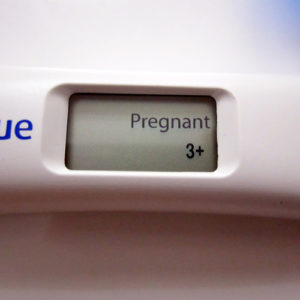For decades, scientists have sought to explain an ongoing decline in sperm concentrations globally. A comprehensive new analysis connects this worrying trend to exposure to certain commonly used pesticides.
Researchers compiled and systematically reviewed 25 previous studies looking at links between organophosphate and carbamate pesticide exposure and male fertility. These classes of insecticides are widely used in commercial agriculture and home pest control products.
Across the included studies spanning several decades and over 1700 total participants, a consistent pattern emerged. After controlling for potential confounding factors like smoking and age, men exposed to higher levels of these pesticides, mostly occupationally, had significantly lower sperm concentrations. Greater exposure correlated clearly with lower measured sperm counts.
Lead researcher Dr. Melissa Perry, Dean of the College of Public Health at George Mason University, summarised the findings: “No matter how we analysed the results, we observed a persistent association between increasing insecticide levels and decreasing sperm counts.” She expressed hope regulators would take note when making decisions about public safety and pesticide use.
Taking Action: Practical Steps For Protection
You’re probably wondering what you can do right now to protect yourself. While completely avoiding pesticide exposure isn’t realistic, you can take smart steps to reduce your contact with these chemicals. Start by switching to organic produce for items like strawberries and spinach – they typically carry the highest pesticide residues. If you’re working with pesticides, don’t skip the protective gear! And here’s a tip many folks miss: kick off those shoes before coming inside. You’d be amazed how many pesticides hitch a ride on your soles from treated lawns and parks.
Independent expert Dr. John Meeker of the University of Michigan found the analysis to be rigorous and its conclusions convincing. He agreed the data connects certain pesticides to declining male fertility, reflected in sperm count reductions over 50-70 years. However other still unknown environmental factors likely contribute too.
The biological mechanisms behind pesticides’ sperm impacts remain uncertain pending more research. But lower sperm concentrations are an established indicator of reduced male fertility. So these latest results raise reasonable concerns around reproductive harms from ongoing pesticide exposures for men desiring future fatherhood.
Broader evidence has indicated sperm counts falling across all global regions, with the decline rate accelerating. Scientists like Dr. Perry argue it is past time for regulatory agencies to account for potential reproductive toxicity when evaluating risks posed by widely used insecticide chemicals. Mitigating exposures for males seeking to reproduce could help buck the long-term sperm concentration plunge.
Figuring out any single dominant cause for worldwide sperm count reductions has proven complicated though. Sperm themselves and factors influencing their viability are complex. Moreover, other modern health issues like rising rates of obesity likely play a role too. Still pesticide exposures can no longer be ruled out as at least a contributor to declining male fertility in light of the accumulated evidence.
While low sperm counts present fertility troubles, so do issues with sperm’s size, shape, and motility. On top of declining concentrations, these aspects of sperm health may also connect to environmental contaminants like pesticides accumulating in people over decades. So further investigation is warranted into the full impacts these exposures could exert on male reproductive capacity.
For now, a body of rigorous research clearly links certain ubiquitous insecticides to reductions in sperm production over generations of use. Men planning future attempts at fathering children would likely benefit from minimising contact with products containing compounds in the implicated organophosphate and carbamate categories going forward.
The Benefits Of At-Home Male Fertility Testing
Knowing your fertility status can bring peace of mind for couples trying to conceive. The Zoom Baby Male Fertility Test Kit allows men to easily and privately check their sperm count from the comfort of home.
The test takes just 5 minutes to complete and provides fast, reliable results indicating if a man’s sperm concentration is above or below 15 million sperm per mL. This sperm concentration threshold offers insight into a man’s fertility outlook.
Convenience And Privacy
Unlike traditional semen analysis testing, the Zoom Baby kit spares men the inconvenience of scheduling appointments and visiting clinics. The privacy of home testing also avoids any embarrassment or discomfort.
The Zoom Baby kit ensures complete discretion in packaging and purchase. Taking control over one’s fertility in the privacy of home can be empowering.
Provides Valuable Insight
By measuring sperm concentration, the test offers important fertility guidance for couples. Concentrations over 15 million sperm per mL indicate positive fertility news. Men can feel reassured knowing they have an optimal concentration.
For lower concentrations, the test allows men to proactively address potential issues before trying to conceive. This timely alert can save months of unsuccessfully trying to get pregnant. Although not proof of infertility, it prompts couples to seek reproductive health advice.
Easy-To-Use And Understand
The Zoom Baby kit includes simple instructions for hassle-free home testing. Unlike complex medical reports, results are easy to interpret — simply positive or negative.
There’s no confusion over what to do next. Positive results provide confidence, while negative findings advise speaking to your doctor about fertility concerns.
Reliable And Accurate Technology
The Zoom Baby Male Fertility Test uses proven test strip technology to accurately evaluate sperm count. Clinical studies found a 97.98% positive conformity rate compared to lab semen analysis.
Men can trust the reliability of results. This gives couples definitive information to inform family planning decisions.
Knowing your fertility status is empowering. The Zoom Baby Male Fertility Test Kit offers an easy, private way for men to take control over their reproductive health.
Zoom Baby is a leading supplier of Pregnancy Tests and Ovulation Test Kits
This post was originally published in 2023. It was last updated in November 2024.






